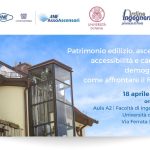PCR for lifts for your environmental product declarations
After three years of intensive work and as many public consultations, the Product Category Rules (PCR) for Lifts was finally published in October 2015 and made available to the lift industry and the outside world. The PCR for Lifts is downloadable from the website of Environdec (www.environdec.com).
The document – valid until October 2019 and with worldwide relevance – constitutes Product Category Rules developed in the framework of the International EPD System, a programme for type III environmental declarations according to EN ISO 14025:2010. Environmental Product Declarations (EPD’s) are voluntary documents providing transparent information about the life cycle environmental impact (LCA) for any type of goods and services. A PCR is defined in EN ISO 14025 as a set of specific rules, requirements and guidelines for developing type III environmental declarations. The PCR document specifies the rules for the underlying Life Cycle Assessment and sets minimum requirements for a specific product group that are more detailed than the standards. Thus, the EPD is the result of the sound and scientifically based rules laid down and thoroughly peer-reviewed in the PCR.
The development of the PCR document has been led by the PCR Working Group at ELA (European Lift Association). Different representatives of the lift sector, such as electric and hydraulic lift manufacturers, lift component manufacturers, lift associations outside ELA and other stakeholders like research centres and consultants have been involved in the process. The PCR has been discussed and fine-tuned during several meetings at ELA and during open face-to-face workshops where all relevant stakeholders have been invited. The objective was to provide a PCR for Lifts that fits the needs of the sector as a whole from lifts manufacturers – be they big, medium or small companies – and lift component manufacturers to their main customers in the construction industry.
The PCR can be used for issuing EPD’s for new lifts or modernized lifts.
THE ROAD AHEAD
Energy efficiency and general environmental concerns are more and more in the spotlight of the building and construction industry. Existing and upcoming European legislation (e.g. Energy Performance of Buildings Directive, Ecodesign Directive, Energy Efficiency Directive, Energy Labelling Directive, Lifts Directive), material compliance (e.g. REACH, RoHS, Conflict Minerals, Product Environmental Footprint (PEF), circular economy) and the growing Green Building movement are constituting new requirements for manufacturers and components suppliers of lifts, escalators and moving walks.
Therefore, staying compliant and competitive in a growing market for green products may mean significant investments in new skills, resources and tools for individual companies within the industry supply chain.
This is where the Product Environmental Platform (PEP) for lifts and components comes into play. We at ELA believe that the development of such a solution for the industry could potentially become a new, safe and cost effective way of providing value added services empowering the entire lift supply chain to satisfy increasing market demand for energy efficient and environmental conscious products.
Indeed, such a platform should be designed in a way allowing to:
reduce the risk of non-compliance of lift manufacturers and component suppliers by tracking and reporting substances of concern that are used in a specific lift component;
allow Life Cycle Assessment (LCA) of complete lift models and/or individual lift components for product development and environmental product innovation;
facilitate the generation of product-specific LCA-reports as the basis for the development of Environmental Product Declarations (EPD) in compliance with EN ISO 14025 and EN 15804.
PEP 4 LIFTS
As an active participant in the PCR development process led by ELA, Thinkstep AG, an industry leading sustainability consulting, software and data company, has now analyzed these desired deliverables and has now come forward with a PEP 4 Lifts platform proposal. This web-based application hub includes lift-specific tools or apps such as the BOM Management app. Via this app, the user can upload a bill of material (BOM) of a specific product (complete lift or single lift component) in order to perform a compliance screening based on the uploaded BOM, conduct a life cycle assessment or create a specific Eco-Profile for his/her products.
Equally, a Compliance Risk Screener App enables the user to screen his/her product for potential compliance risks. The Environmental Report Generator (ERG App) offers non-LCA experts (e.g. sustainability managers, R&D and product managers) the opportunity to generate LCAs and translate LCA results into Eco-profiles based on the uploaded Bill of Materials. ERG provides generic templates that display LCA results for internal purposes or for the creation of EPD’s in compliance with existing standards and the PCR for Lifts.
Finally, the LCA Hub App of the proposed system is designed to share unit process information between individual users of the PEP platform in a secure and confidential environment. Through this app, a component supplier can share life cycle information for its components to a specific customer (manufacturer of complete lift models) in order to allow its customer to include specific component information into its own LCA and/or compliance screening activities.
The validation of PEP 4 Lifts – or the analysis of alternative solutions – will be the subject of the newly re-established ELA PCR Task Force, comprising external specialist consultants and representatives of components manufacturers as well as small and medium lift companies. Completion of this task is planned for late 2016.
By Jean-Pierre Jacobs – ELA European Lift Association









